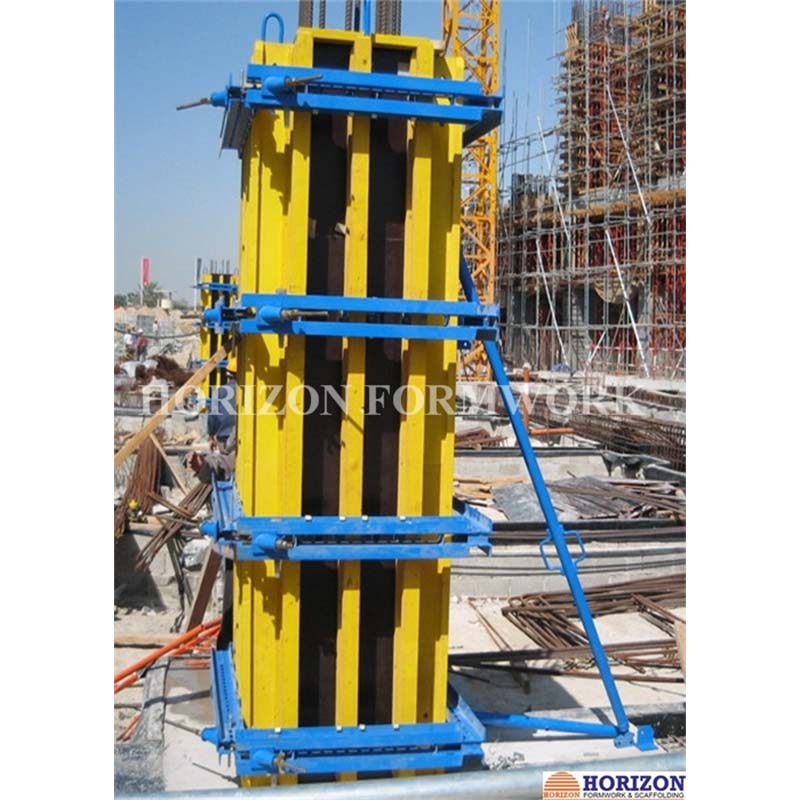Nov . 06, 2024 03:19 Back to list
Innovative Solutions for Modular Plastic Formwork Systems in Construction Industry
The Benefits of Modular Plastic Formwork in Construction
In the ever-evolving world of construction, the tools and materials we use dictate the efficiency and sustainability of our projects. One of the most groundbreaking advancements in this sector is modular plastic formwork. A significant innovation over traditional materials like wood or metal, modular plastic formwork has rapidly gained recognition for its versatility, durability, and environmental benefits. In this article, we will explore the myriad advantages of using modular plastic formwork and why construction companies should consider its integration into their workflows.
What is Modular Plastic Formwork?
Modular plastic formwork comprises pre-fabricated panels made from high-density polyethylene (HDPE) or other durable plastics designed to shape concrete structures. Unlike typical concrete formwork, which is often bulky and heavy, modular plastic formwork is lightweight and easy to handle. These panels easily interlock to create virtually any shape or size, making them a sought-after solution for modern construction projects, whether residential, commercial, or industrial.
Key Advantages of Modular Plastic Formwork
1. Lightweight and Easy to Handle Traditional formwork can be cumbersome and challenging to transport. In contrast, modular plastic formwork significantly reduces weight, making it highly portable. This ease of handling can decrease labor costs, as fewer workers are needed to set up and dismantle the panels.
2. Durability and Longevity Plastic formwork is resistant to moisture, rust, and corrosion, further extending its life. In contrast, wood and metal formwork often succumb to wear and tear, necessitating frequent replacements. This durability means that construction companies can use plastic formwork for multiple projects over several years, providing better long-term value.
modular plastic formwork company

3. Cost-Effective Solution While the initial investment in modular plastic formwork may be higher than traditional materials, the overall cost savings become evident over time. The reduced labor requirements, longer lifespan, and reusability of the panels contribute to lower costs per project. Additionally, the ability to produce high-quality concrete finishes with fewer imperfections minimizes the need for additional finishing work, resulting in more savings.
4. Versatility The modular nature of plastic formwork allows for a high degree of customization. Construction teams can easily design and adjust the size and shape of their formwork to accommodate different concrete structures. This flexibility enables the construction of complex designs without the need for elaborate scaffolding or additional support.
5. Eco-Friendly Choice As societies grow increasingly conscious of environmental issues, the construction industry faces pressure to adopt greener practices. Modular plastic formwork aligns with these sustainability efforts by being recyclable and made from sources that can reduce waste. Furthermore, the manufacturing process for plastic formwork can be less environmentally damaging than that of traditional materials.
Applications Across Various Industries
According to many leading modular plastic formwork companies, the applications for this innovative material are nearly endless. From residential projects, where intricate designs are a norm, to commercial buildings requiring large-scale construction, modular plastic formwork accommodates it all. Its properties make it ideal for foundations, walls, columns, and complicated structures that benefit from its high precision and durability.
Conclusion
As the construction industry seeks advancements in efficiency and sustainability, modular plastic formwork stands out as a transformative material. Its lightweight nature, durability, cost-effectiveness, versatility, and eco-friendly attributes make it a smart choice for modern construction projects. Companies that invest in modular plastic formwork can expect improved workflows, higher quality finishes, and a commitment to sustainable practices. As the demand for innovative construction solutions continues to grow, modular plastic formwork will undoubtedly play a pivotal role in shaping the future of the industry. Embracing this technology may well be the key to staying competitive in today’s dynamic construction landscape.
-
High-Quality U Head Jack Scaffolding – Reliable Scaffolding Jack Head Manufacturer & Factory
NewsJul.08,2025
-
High-Quality I Beam H20 Leading Timber Beam H20 Material Factory, Exporters & Manufacturers
NewsJul.08,2025
-
High-Quality Powder Coating Steel Formwork - Durable & Corrosion Resistant Solutions
NewsJul.07,2025
-
Inclined Column Formwork Supplier – Durable & Precise Solutions for Unique Structures
NewsJul.07,2025
-
High-Quality Water Stop Solutions Trusted Water Stop Company & Suppliers
NewsJul.07,2025
-
High-Quality Formwork Material Supplier Reliable Manufacturer & Factory Solutions
NewsJul.06,2025